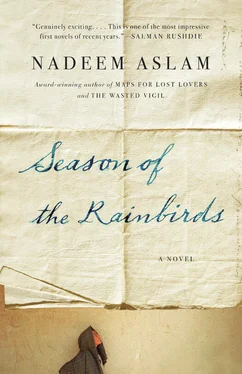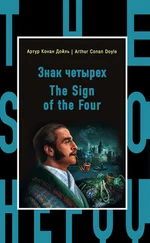Yusuf Rao began to hand round the coffee. The cups and saucers had chipped edges revealing the darker clay beneath the white glaze.
Saif Aziz took a small mouthful, cautiously. ‘Where did you get coffee from?’
‘A woman returning from Canada made me a gift of it,’ Yusuf Rao said over his shoulder. And to Mr Kasmi he said: ‘She came to see me as well the day before yesterday.’
Mr Kasmi, his fingers delicately curved, took the cup being offered. ‘She’s the aunt of the boy who fired the shot at Yusuf,’ he turned towards the newcomers and explained.
The photographer sat on a stool by the filing cabinet, flicking through a magazine. Yusuf Rao set a cup for him on the shelf by his elbow and returned to his chair.
‘Those elections!’ Saif Aziz shook his head. ‘How wrong you were, Yusuf.’ He was frowning. ‘You should have joined the Mazdoor-Kisan party from the beginning. I wrote telling you to do so. Instead you went around supporting their suppression.’
‘Look, Saif, yaar,’ Yusuf Rao said. ‘I have admitted to being wrong in the past. I believed all the promises. I believed that the enemy wasn’t just the rich and the powerful but also the dissident voices within our own party who criticised us for not doing enough. We thought that they would jeopardise the prime minister’s re-election.’
‘If more people had joined us from the outset then the country wouldn’t be the mess that it is now,’ Saif Aziz said. ‘Now we’ve got this general who looks as if he won’t budge without the help of dynamite.’
‘But I wasn’t the only one. Everyone was taken in by the lies,’ Yusuf Rao said, but the conviction had gone out of his voice. ‘I had the support of the whole town. Women didn’t talk to Kalsum for months after her son fired that shot at me. And that poor boy himself … We all know how much his trying to kill me enraged the people. They beat him to death, on the spot.’
Mr Kasmi had been listening intently. He nodded, then said: ‘So, Yusuf, you accept that it was not Mujeeb Ali who had the boy killed, that it was the people themselves who beat the boy out of loyalty to you.’
‘No.’ Yusuf Rao shook his head uneasily. ‘It wouldn’t have gone beyond a beating. After all, he missed. I have no doubt that there were people planted in that crowd who made sure that the blows did not stop until the boy was — well, dead.’
There was a silence.
Then the photographer exclaimed: ‘Here’s one of my photographs.’ He folded the magazine on itself and offered it at arm’s length to the others.
It passed from hand to hand. ‘The only reason this magazine continues to publish is that it is in English,’ said Saif Aziz. ‘You couldn’t get away with saying half these things in Urdu. They would have banned it years ago.’ Saif Aziz’s own name appeared on the back page, in the list of regular contributors. It was a name associated with numerous organisations that existed, to all intents and purposes, on letterheads only. He had also been thanked in the preface of a book published in England a decade or so ago. The author, an expatriate, had predicted with great timeliness the breakup of the country. But that was a long time ago: the book was probably out of print by now and the library copies would have been withdrawn and sold off cheap.
Two small boys dressed in soiled clothes appeared at the door of the office. Each carried high on his back a bundle of books. One of them stayed framed in the door, as the other entered the room and advanced towards Yusuf Rao’s desk. On this he placed two rectangles of pink card. They were bus passes. Then the boy addressed Yusuf Rao, the man behind the desk: ‘Can you put a rubber stamp on these, chacha-ji.’ His voice was weak, melodious. He seemed to be standing to attention.
Yusuf Rao examined the cards. They folded like wallets. ‘They should be stamped by someone at the bus station,’ he told the boy.
But the boy shook his head. ‘ They say they should be stamped by the post office but the post office is closed today.’
The second boy entered the office. He had been admiring Saif Aziz’s car. ‘They won’t be of much use anyway,’ he said. He seemed a little more confident, more expansive, than his friend. ‘The conductors recognise us standing by the road and don’t thump on the side of the bus to tell the driver to stop. They know we are free bus-passers.’
The first boy nodded his agreement vigorously. ‘Then if we walk from our village we are late for school and the teachers punish us. And if we go back home our fathers beat us saying we missed the bus on purpose.’
The photographer watched the boys with interest. ‘So what do you do?’
Both boys laughed noisily. ‘We go for swims in the rivers.’
Yusuf Rao smiled and shook his head, then reached into the bottom drawer of his desk and took out an old rubber stamp. The rubber had become brittle and was flaking away, and many of the letters had crumbled. He flicked open the ink pad. ‘I’ll put one of mine on. The conductor won’t know the difference,’ he said confidently. ‘He just needs to see a stamp.’
Once their passes were stamped the boys wheeled round happily and were gone.
Mr Kasmi shook his head and smiled. ‘When I was their age my mother-ji would send me to the village blacksmith’s shop every day. Sit and watch what he does, she would say, you’ll learn something.’
The photographer’s lips parted in amusement. ‘My mother would order me to stand by the mechanic every time he came round to fix something. And she used exactly the same words. You’ll learn something.’
‘Are you from one of the villages around here, Kasmi-sahib?’ Saif Aziz asked. He was still examining the magazine.
Mr Kasmi looked at Yusuf Rao who said: ‘No.’
The forcefulness of his reply, followed now by silence, drew the newcomers’ attention.
‘I’m from one of the villages that were burnt down under the last government,’ Mr Kasmi said in a flat voice.
Saif Aziz rounded his mouth and shifted in his chair. ‘You’re an Ahmadiya, Kasmi-sahib?’ The Ahmadiyas belonged to a sect considered heretical by purists. It was outlawed by the previous prime minister in an effort to placate the maulanas and to win over the religious vote.
‘Do people know?’ the photographer whispered urgently.
Yusuf Rao folded his arms in his lap. ‘All the Ahmadiyas were driven out of the town and their houses razed to the ground. But Kasmi has never really been religious, so no one really knew. Everyone just loves and respects him as the man who pulled a generation’s ears out of shape.’
The remark forced the others to offer awkward smiles. But the pretence at light-heartedness was short-lived.
Mr Kasmi stood up with a sigh. The sun was beginning to withdraw its rays. ‘I’d better be getting back,’ he said. ‘Sister-ji will be wondering.’
Yusuf Rao swayed over to the door and shouted for the tea-stall boy.
Saif Aziz slapped his knees and stood. ‘Tomorrow,’ he said, ‘we get down to business. Talking to the sixty-seven people who have received the letters.’
Yusuf Rao clapped a hand to his forehead. ‘How could I forget,’ he said. ‘ I received a letter this morning. Or to be precise, my wife did.’
‘What was it?’ Mr Kasmi asked. He took down the umbrella from the hook and picked up the leather bag from the shelf.
‘It was a letter I wrote to her from Lahore. I was away taking the bar examinations,’ Yusuf Rao was laughing. ‘She says I should be ashamed for writing such vulgar things in a letter. But I tell her that a man can write whatever he wants in a letter to his wife, especially a young man. She says didn’t I know that the letter would be going into a house full of children — what if it had fallen into their hands?’
Читать дальше












